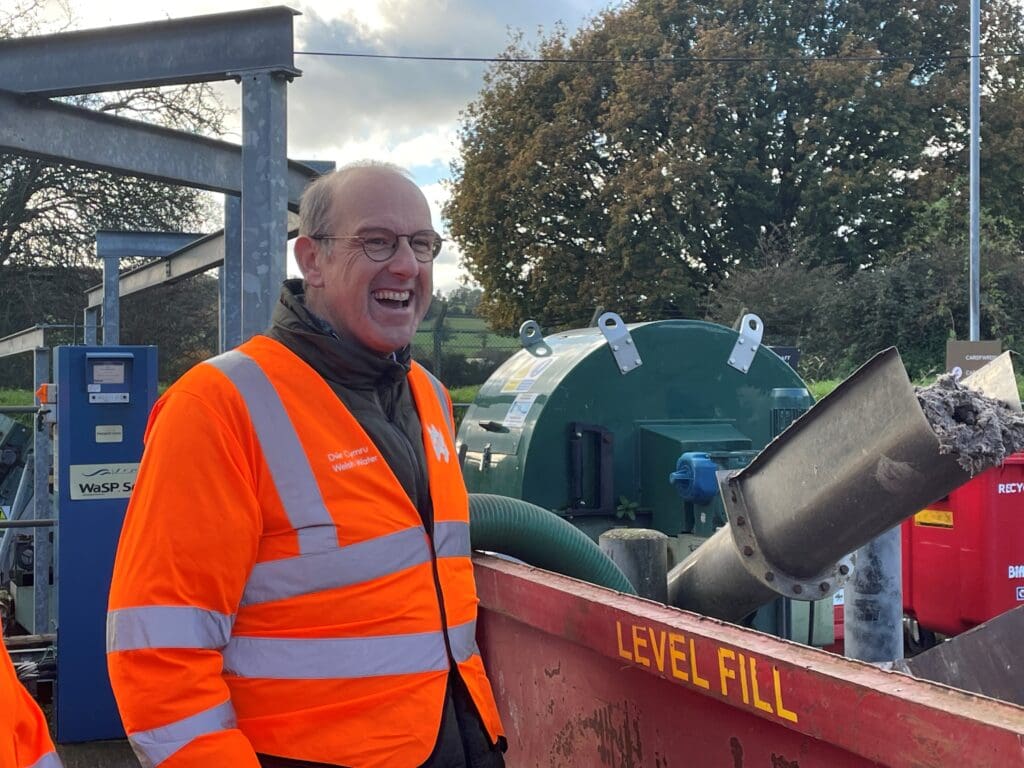Poo from across North Wales is being used to heat homes and cook meals in Wrexham, an MS has heard.
During a visit to Welsh Water’s wastewater treatment work in Ruthin, Llŷr Gruffydd, who represents North Wales in the Senedd, was told how human waste from the region is processed so it can be used by the National Grid.
The Plaid Cymru politician described it as a “positive story for the circular economy in North Wales”.
Staff from the water firm explained that chemistry is used to turn soluble phosphorous in waste water into a solid.
The sewage sludge is then transported to a Welsh Water site in Wrexham where it is effectively cooked in a pressure cooker using what is called an advanced anaerobic digestion process.
This produces methane gas which is cleaned and then put in the gas grid. This means that people in Wrexham are heating their homes and cooking using human waste from across North Wales.
During the visit Mr Gruffydd, who is his party’s Shadow Minister for Rural Affairs, as well as the Chair of the Climate Change, Environment, and Infrastructure Committee, also welcomed a £5m investment by Welsh Water in its Ruthin site to tackle phosphorous levels, which he described as a “positive step”.
Ruthin wastewater treatment work (WWTW) is a conventional biological filtration works.
The site discharges to the Afon Clwyd and serves a total population of 6,403.
Welsh Water has recently invested over £5 million at its Ruthin WWTW to reduce phosphorous levels at the works.
The aim of this is to help reduce overall phosphorous levels within the Afon Clwyd.
The scope of work carried out under this Scheme includes modifications to existing assets and the supply and installation of new assets.
Llŷr Gruffydd MS said: “I have to say that I had no idea that homes in Wrexham were being heated in this way.
“This is a positive story for the circular economy in North Wales. It is absolutely vital that we reduce our reliance on fossil fuels to heat our homes and become more self-sufficient as a nation and this is a good example of how it can be done.
“It was encouraging to hear that Welsh Water’s site in Wrexham is energy self-sufficient due to the electricity coming from its solar panels as well as the biogas it produces which is used for heating.
“The £5m investment by Welsh Water in its Ruthin site is also a positive step that is to be welcomed.
“It is important that it is ensured that phosphorous levels in our rivers aren’t too high and that pollution levels are brought down. That is something we all want to see.
“It’s essential that the Welsh Government, Natural Resources Wales, Ofwat and Welsh Water all work together to ensure that discharges are brought down to more sustainable levels as quickly as possible.
“I would like to thank the team from Welsh Water for the fascinating visit and for taking the time to show me around the plant and explaining how their system operates.”

